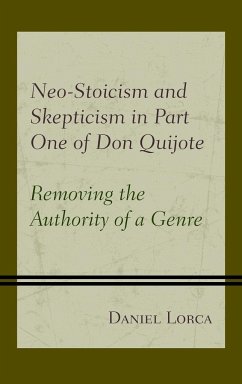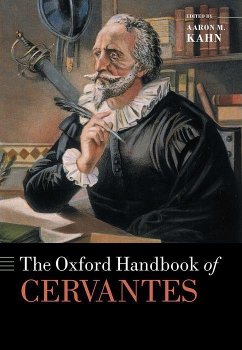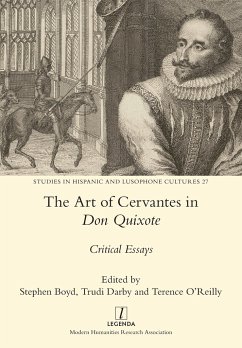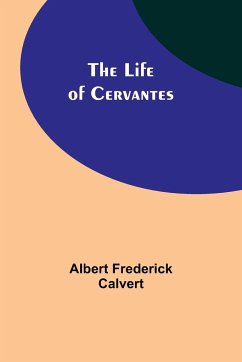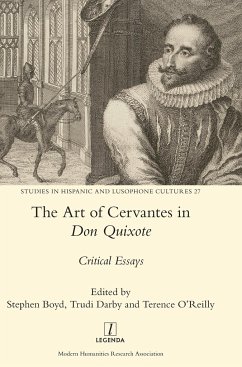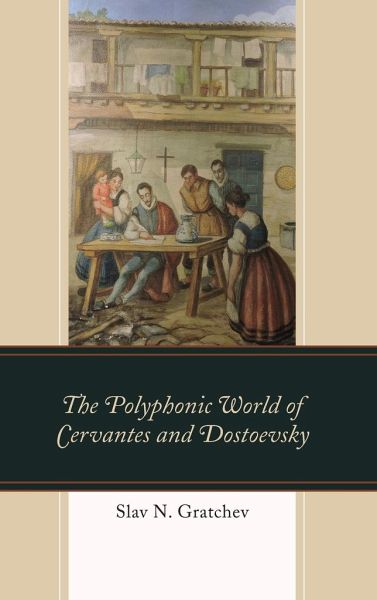
Polyphonic World of Cervantes and Dostoevsky
Versandkostenfrei!
Versandfertig in 1-2 Wochen
110,99 €
inkl. MwSt.
Weitere Ausgaben:

PAYBACK Punkte
55 °P sammeln!
This book shows that Cervantes deliberately employed polyphonic structure in Don Quixote, a mode with more sophisticated expressive possibilities that monophonic narration could not offer. It suggests that Don Quixote can be treated as a semi-polyphonic hybrid novel that successfully amalgamates two narrative modes, monophonic and polyphonic.





